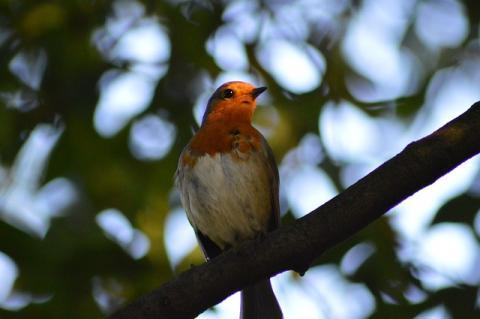
I have a confession: I like bird watching. Actually, I love bird watching. You might be picturing images from the popular movie with actors Steve Martin, Jack Black and Owen Wilson titled The Big Day, but in fact birding is enjoyed by people of all ages and genders. I was eleven years old when I first became interested in birding, and started by placing a suet feeder, meant for woodpeckers, on a tree that I could see from my family’s kitchen window. The first few days brought nothing more than an inquisitive squirrel. However, on the fourth day a large pileated woodpecker (think Woody Woodpecker) landed on the suet and I was hooked on bird watching. Beyond the intrinsic beauty of seeing birds in their natural habitat as opposed to a zoo or pet store, birding has a host of benefits. Here’s why birding is more than just a senior’s hobby, how to take part, and the best places to find birds in your area:
Benefits of Birding:
See: How birds and their habitat benefit you
Birding might not seem like a particularly beneficial hobby–after all, it’s slow, it takes patience, and it can, at times, be frustrating. But birding has a load of psychological, physical, and emotional benefits. A study published by the University of Exeter in the UK found that people who live near shrubs, bushes and trees where birds can be found are less likely to suffer from depression, anxiety, and stress. The study went on to look at the specific number and time of day when people saw birds and found the lowest levels of anxiety in those who saw the highest number of birds in the afternoon. Another article, published in January of 2017 in Bioscience, concluded that those who surrounded themselves with nature, either by choice or by proximity to where they lived, had the lowest levels and lowest risk of mental illnesses.
Birding can elicit changes at a level we can feel internally. This doctor wrote about the changes he felt when birding, including feeling a sense of calmness. Part of this has to do with the fact that birding takes patience and stillness–forget about music, or dogs tugging at the end of the leash, or answering phone calls or texts. You’ll miss the bird (or worse, not even hear it at all.) Not to mention, numerous studies have been published lauding the effects of being in nature has on our mental and emotional state. This study discussed the benefits of seeing the green of trees, grasses, and bushes while this one found that walking in nature can prevent depression. Still others concluded that walking in nature, looking at nature, and being in nature can reduce levels of stress.
Hear: Why birdsong is more than just pretty
Hearing birds sing, cheep, call, and shriek is more special than you might think. In 2013, BBC News published an article describing how birdsong can actually provide better focus, induce post-meal sleepiness (thanks to a rhythm provided by the birdsongs themselves), help us remain calm under stressful situations (like immunization needles for children), and even improve business. Another three year-long study is finding correlations between birdsong and mediating our circadian rhythm.
Touch: It’s not about trying to catch birds
Vitamin D is crucial for a host of actions that take place in the human body. Most notably, it’s essential for good bone health. This article, published in the Harvard Health Publications makes the case for getting more vitamin D. The best way to do that? With safe sun exposure (and good nutrition, seen here). Getting outside for fifteen minutes a day is a great start, and birding is a good excuse to talk a walk in the sunshine and look for birds while you’re waiting!
How to Bird
Birding is an easy, cheap hobby for some, and a difficult, expensive hobby for others. While some birders will go nowhere without high quality diascopes, binoculars, bird identification books and more, others can start simply by sitting at a park bench and using little more than one’s own eyes to see nearby birds. For those who are new to the world of birding, picking up an ID book featuring local or regional birds is a great place to start.
Another option is to find a local birding group or download one of several helpful apps like Merlin Bird ID or eBird. Merlin Bird ID asks five questions to gather a list of possible birds that you saw; in this way, even basic beginners can start to learn their birds. eBird, on the other hand, is a citizen science app. That means that data you collect–where you went birding, for how long, how many birds and of what species you saw–is used to determine flight patterns, migrations, and influx of birds in specific regions.
Get Involved
Oftentimes the best part about birding, like any hobby, is the connection to community. Many cities and regions around the world have local birding chapters. Audobon can be a great reference as both an education resource and a place to search the Audubon chapter closest to you. Many local groups offer field trips and beginner birding groups.
Grab a friend, head to your local park, and simply wait. You have nothing to lose with birding and everything (including your health) to gain.








